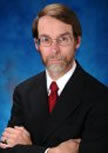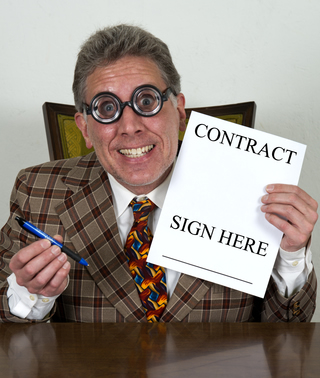Tag: "solar fraud"
10/28/17
Categories: Residential Solar, Ranting, Solar Policy
Solar Litigation Primer - Lessons Learned as an Expert Witness
I was recently asked to serve as an expert witness in a lawsuit against a super-shady solar installer. After some soul-searching I agreed to take the job, in part as a way to help the solar industry police itself. It was an interesting experience, and so I wanted to share some of my “lessons learned.”
Why Me?

Jim Jenal,
trial lawyer!
In addition to having degrees in Mathematics and Computer Science, I also earned a law degree, and practiced as a trial lawyer for 13 years in the litigation department of O’Melveny & Myers. Much of that time I spent working with expert witnesses: running teams of consulting experts, overseeing the production of expert reports, taking and defending expert witness depositions, as well as presenting and cross examining experts at trial. So I understand how the whole “expert witness” gig works.
Of course, more recently, I have been in charge of Run on Sun, and I have been NABCEP certified since 2010. I have also written at length about problems in the solar industry and the need for us to do a better job at self-policing, or we will face the inevitable backlash. Lawsuits, of course, are part of that backlash, and as the industry continues to grow, and shady operators continue to proliferate, the number of lawsuits will grow accordingly.
Key Lessons Learned
The case in which I participated, Mandt v. American Solar Solutions, et al., involved a homeowner who was defrauded into purchasing an over-priced, under-performing solar system from a “contractor” who didn’t have a license (he was renting a license number from a retired plumber), and lied repeatedly about what the system would do. The sleazy contractor is now facing criminal charges in Riverside County. Clearly if we are going to assist in getting bad actors out of the industry, this was a good place to start.
It was interesting to be involved in litigation as an expert witness, and here are some key takeaways from that experience.
Engage your Expert Early
I was retained relatively late in the process, and I think that was a mistake. If you are a trial lawyer dealing with your first solar case, it is highly likely that you lack the technical knowledge to know what the process of developing a proper quote and then following through on the install should look like. For example, lawyers generally lack expertise in analyzing utility bills, or interpreting the results of a shade analysis. If you lack that type of knowledge - and why would you possess it? - it will be hard for you to depose the shady contractor thoroughly.
Engaging the expert early - and setting out clear guidelines as to how much time should be spent (more on that below) - will allow you to approach discovery in a more focused manner, and ensure that you aren’t leaving important factual issues undeveloped.
Is it Fraud or just Mismanaged Expectations?
Not all apparent cases of fraud are; sometimes what we are actually dealing with is a case of mismanaged expectations. (That emphatically wasn’t the case here!)
Not all solar installers are good at explaining the fine points of what living with a solar system will be like, and some solar clients hear what they want to hear! (See, e.g., “I’ve got solar; why is my bill so high?“) It is really key to press your client on these points, as it will surely be the point of attack from the defense.

Caution: Fraudster!
One tip - fraudsters provide minimal and misleading disclosures, tend not to provide the system owner with any documentation about their system (things like data sheets for installed products, as-built site and electrical drawings, copies of warranties, etc.) because that takes time and they want to be on to the next sucker, and are prone to promising “generic” solar systems (i.e, one’s where the actual components to be used are never part of the contract).
In contrast, a legit solar installer makes comprehensive disclosures about the components to be used and what they will cost, line-item by line-item. They will also provide complete documentation when the project is complete.
Be Realistic About the Cost of Litigation
Litigation is expensive. (Back in the day, I routinely worked on cases where the burn rate to the client exceeded $1,000,000/month!) Even small cases can end up producing expenses that are painful to the client footing the bill, and surely expert witnesses contribute to that cost. It is important for the lawyer and the client to have a clear understanding of the time it will take an expert to become familiar with the essential facts, do whatever research they need (a site visit is almost certainly essential), and prepare to testify. Just as a good solar installer has to properly manage their client’s expectations, so too must the lawyer keep the client apprised of what the expert will cost, and make sure that the expert knows what those limits are.
After all, the system owner has already gotten sticker shock once, we don’t want to compound that experience!



